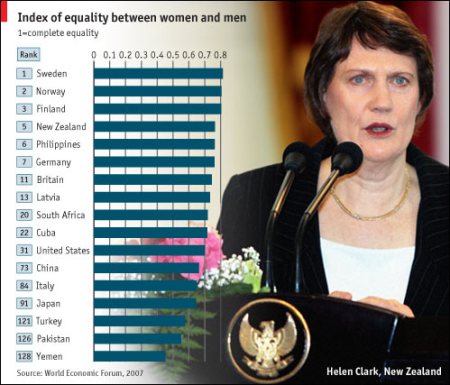I am constantly impressed by the quality of posts on The Economist‘s blog Free Exchange.
There was this post about Efficient Market Hypothsis which was good, without even considering the excellent comments.
- Weak: you can’t beat the market by trading on historical prices. Almost everyone believes this except that guy you see on Saturday morning financial shows. If he was making money doing this, he wouldn’t need to be seeking publicity on a Saturday morning financial show.
- Semi-strong: you can’t beat the market by trading on public information, because by the time you know about it, so does the guy you’re trying to trade with. This is not quite true, but beating the market this way is now essentially an engineering problem, rather than an economic issue. If you can make your computer fast enough to push through a trade before the other guy’s computer has reacted to the new information, you can make money. But it is hard to do, and requires not just technical genius but also an expensive up-front capital investment
- Strong: All public and non-public information is incorporated into the stock price. I don’t believe this is true. But I believe it is sort of true, thanks to insider trading. Stocks show considerable evidence of movement on things like proposed mergers, and bad earnings, after those things are known inside the company, but before they are announced. But the fact that it is possible to make money insider trading, as it seems to have been, dictates against the strongest version of this.
And this post about a recent news items that states:
If your friends and family get fat, chances are you will too, researchers report in a startling new study that suggests obesity is ‘socially contagious’ and can spread easily from person to person.
The Free Exchange blog then follows with an excellent post that gives an addional insight via standard economic theory.
If something, such as your friends getting fat, reduces a cost of obesity then it well may cause you to become obese. But if you are rational and now switch to being obese you must be better off than before. So your friends’ weight gain has made you happier.
Suppose you must decide whether to do X. (X could represent choosing to eat a lot.) Initially you reject X . But then a cost of doing X goes down. If you still don’t do X you are made no worse off by the cost reduction. If, however, you switch to X you must now be better off than before (or else you would not have switched) so whatever has reduced the cost of X has increased your happiness.



 Posted by latticework01
Posted by latticework01 
